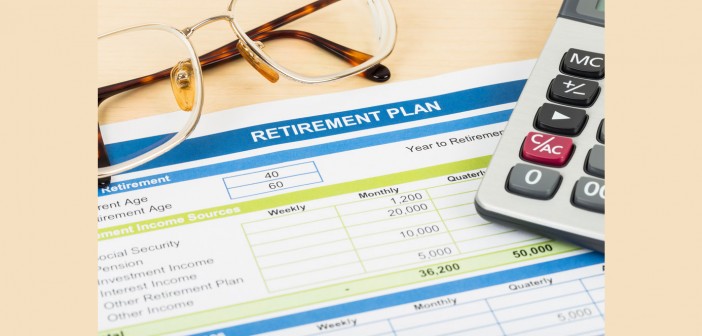So you’re living from pay check to pay check as it is. After paying for essentials like rent, loans, food, utilities and transport, you barely have enough left to spend, much less save up for retirement. Yet, you don’t want to be financially strapped for all of your life and you don’t want to have to continue working until the day you die. Does this sound like you?
Whether you have just embarked on the corporate ladder or whether you’ve been stuck in this situation for some time now, the bad news is: You DO need to prepare for retirement and it will require more discipline than those with deeper pockets. But the silver lining is: You CAN plan ahead and retire comfortably!
The first thing you need to do is to make sure that your foundations are solid, said Mr Mark Cheng, editor of website MoneySmart.sg. The precarious thing about having a low disposable income is not having liquidity to deal with unexpected financial burdens. Thankfully, insurance can help shoulder some of this burden. “Making sure that you are covered for the high variable health costs that might come about later on in life will ensure that your savings are not decimated by one major illness,” he said, adding that getting a simple term life insurance plan is easily affordable and can save one a lot of heartache.
Secondly, you need to ask yourself, “Am I saving at least 25 to 30% of my monthly salary?” If you’re not, it’s time to examine your current lifestyle and make cuts which will allow you to put aside a certain amount of cash regularly for your nest egg.
Be aware of your spending habits, cautions Mr Cheng. “I’ve had friends tell me of sales staff who make less than $2,000 a month dropping $600 on a handbag the moment they get their pay,” he said. That’s more than 30% of the abovementioned monthly income!
Think about the value of that $600 if you delay gratification. If you save 25 to 30% of your monthly income, you will only need 70 to 75% of your current income (including both active and passive income) to sustain yourself in the same lifestyle during your retirement, as you would no longer need to save for retirement by that stage. If you are in the habit of saving 40% of your current salary, then you need only 60% of your current income to lead the same lifestyle.
And the earlier you start squirrelling those $600 sums away, the sooner you’ll reach financial freedom! Assistant Professor of Finance (Education) Aurobindo Ghosh, from the Singapore Management University, said that you should think about your objectives when planning for your retirement.
These three things, to be specific:
- When you would like to get financial freedom, or independence. In Singapore, under the Retirement and Re-employment Act (RRA), the minimum retirement age is 62 years. However, employers are required to offer re-employment to eligible employees who turn 62, up to age 65, to continue their employment in the organisation. (Source: www.mom.gov.sg)
- Whether you want to continue with the lifestyle you currently lead. Are you thinking of living it up after you’ve stopped working full-time, or are you okay with an austere lifestyle?
- What you want to do when you attain this financial freedom. Travel across the world? Set up a volunteer welfare organisation? How much money do you need to make your dreams a reality?
Starting early is key to achieving your financial goals. “The longer you start saving small amounts and lead more disciplined spending and budgeting habits, the more successful you would be at achieving your goals,” said Assistant Professor of Finance (Education) Aurobindo Ghosh, from the Singapore Management University.
For those among us who need a bit of discipline, why not consider automating your savings and investments? Set up a separate savings account that you funnel to at the start of the month to take care of basics such as insurance, investments, payments and an emergency fund before you start spending your money, suggested Mr Cheng. This could be in the form of an endowment plan (insurance) or a fixed deposit savings plan with a bank. And for those of us who are self-employed, you might want to consider voluntarily making monthly Central Provident Fund deposits – the interest is decent and will help generate some passive income, too.
It’s not true that you have to sit out on investing your cash just because you’re not making a gazillion bucks. While you may want to shelve the idea of putting your money into high risk ventures, you can look into simple financial products which will allow you to invest from as little as $100 a month into the Straits Times Index (STI) Exchange Traded Fund (ETF), said Mr Cheng. An ETF gives the holder the benefit of diversification, and the STI ETF tracks a basket of handpicked blue chip companies in the STI – potentially mimicking the returns of the Singapore economy.
To help you decide how best to start saving, we’ve asked Prof Ghosh and Mr Cheng to tell us the pros and cons of 1) an insurance plan 2) a savings plan 3) or starting an investment portfolio. Here you go:
| Pros | Cons | |
| Insurance plan | People with low disposable income are at greater danger when it comes to unexpected financial burdens as they don’t have the liquidity to help them. A life insurance plan is an inexpensive way to make sure you are covered for the high variable health costs you are likely to incur later on in life. | End up overspending for policies you don’t need or are sold products that aren’t relevant to your goals. |
| Savings plan | Helps you set aside money in a disciplined manner every month, great for amassing emergency funds. | You might not be able to earn as much as you would by investing that money. |
| Investment portfolio | The best way out of the three to beat the loss of wealth due to inflation or price rise. | You will need to be disciplined and invest over a longer horizon to weather the volatilities of the market. You should be careful only to take low risk strategies or investments, which may mean lower returns than high risk products. |
To make an objective decision about how you should go about saving, it could be helpful to seek professional help from financial establishments like insurance companies and banks to see what products suit your budget, said Prof Ghosh.
So what are you waiting for? Contact a financial adviser today to find out more.





1 Comment
The risky aspect of having little discretionary income is that you may not have enough cash on hand to handle unforeseen expenses. Check active demolition